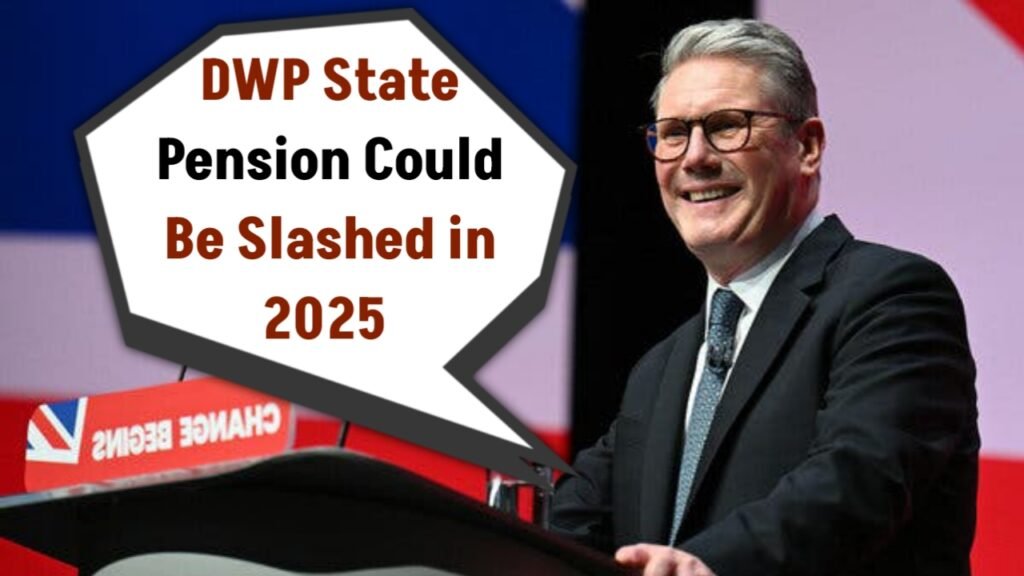The UK’s state pension system has long been a source of financial security for millions. But recent discussions and economic pressures are raising serious concerns. According to insiders, the Department for Work and Pensions (DWP) may introduce major changes to the state pension structure in 2025, and these changes could result in a significant cut for many recipients.
With two major economic factors shaping the debate, it’s time to understand what’s really happening, who might be affected, and how to prepare for potential changes. If you rely on the state pension or plan to in the coming years, this article is essential reading.
Why Is The DWP Considering Pension Cuts?
Rising inflation, an ageing population, and an overstretched welfare budget have all placed pressure on the UK government. Treasury officials are reportedly exploring ways to reduce public spending, and the state pension—one of the largest budget commitments—is under scrutiny.
The DWP’s goal is to ensure long-term sustainability. However, this might mean pensioners receiving less than what they currently get or what was expected under the triple lock promise.
UK Pensioners Set for August Pension Boost – Full Details & Eligibility Explained
The Triple Lock Guarantee Under Threat
The triple lock is a mechanism that increases the state pension each year based on whichever is highest: average earnings growth, inflation, or 2.5%. While it was designed to protect pensioners’ income, the recent sharp rise in wages and inflation has made it costly for the government.
There are strong signals that the triple lock could be modified or suspended in 2025. This would immediately impact future state pension increases—leading to lower annual rises and a reduced long-term income for millions of retirees.
Wage Growth vs. Inflation
The first major factor influencing pension changes is the conflict between wage growth and inflation. Over the past two years, wages have risen quickly due to labour shortages and economic recovery post-COVID. At the same time, inflation has spiked, creating a double burden.
If the triple lock remains intact, pensions would need to increase sharply again in 2025—possibly by more than 7%. But the government is debating whether such increases are fair, especially when working taxpayers are also struggling with cost-of-living pressures.
Key Factor 2: Fiscal Sustainability
The second factor is fiscal responsibility. The government is facing record debt levels and a growing deficit. With the UK spending billions on welfare, energy subsidies, and NHS funding, cuts are being considered across departments.
If the state pension continues to rise rapidly, it may become unsustainable in the long term. As a result, DWP may be forced to cap increases, raise the retirement age faster, or shift to a different indexation model entirely.
Who Will Be Affected?
If the proposed changes go ahead, the effects could be wide-ranging:
- Current Pensioners: May see lower-than-expected increases in April 2025 and beyond.
- Future Retirees: Could face delayed access to pensions if the state pension age is raised again.
- Low-Income Households: Would be hit hardest, especially those relying solely on the state pension for basic living expenses.
Government’s Possible Solutions
To soften the blow, the government might introduce targeted support:
- Means-tested top-ups for the poorest pensioners
- A phased shift away from the triple lock rather than a full suspension
- Adjustments to tax allowances to balance income loss
However, none of these options are confirmed, and uncertainty remains.
What Should You Do Now?
If you’re nearing retirement or already receiving the state pension, now is the time to reassess your finances. Here’s what UK residents can do:
- Review your National Insurance contributions to ensure full pension eligibility
- Consider private pension savings to supplement state income
- Follow government announcements closely, especially during the Autumn Budget 2025
You may also want to speak to a pension adviser or financial planner to explore your options in case of reduced benefits.
Public Reaction And Political Pressure
Pensioners’ groups and charities have already voiced concerns about the potential cuts. With a general election approaching, any changes to pension promises could become a hot political issue. Political leaders are being urged to maintain the triple lock or at least provide clarity and fairness if changes are made.
Public protests, petitions, and pressure campaigns could influence the final decision—but there’s no guarantee.
Final Decision Expected Soon
The DWP is expected to announce its final position on state pension adjustments by early 2025, possibly in January or during the Spring Budget. Until then, the debate is likely to intensify, and millions of UK citizens will be watching closely.
What This Means For The Average Retiree
For someone on the full new state pension, currently £221.20 per week (2024–2025), even a small cut or freeze could mean losing hundreds of pounds annually. That’s a significant blow for retirees on fixed incomes, especially with energy bills and food prices still high.
Planning ahead is crucial. While the government has not officially confirmed any reductions, all indicators suggest that some form of reform is coming.
Stay Informed To Stay Protected
In uncertain economic times, staying informed is your best defence. Follow updates from trusted sources like GOV.UK, MoneyHelper, and official DWP announcements. Make sure you’re aware of your entitlements, deadlines, and the latest policy changes.
Conclusion
The potential slashing of the DWP state pension in 2025 is more than just a financial adjustment—it’s a wake-up call for millions across the UK. With two key factors—wage growth and government debt—driving the debate, change seems inevitable.
Whether you’re already retired or planning for the future, the best step forward is preparation. Keep yourself informed, explore backup plans, and ensure your voice is heard as decisions are made that could shape your financial future.
